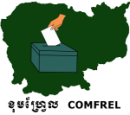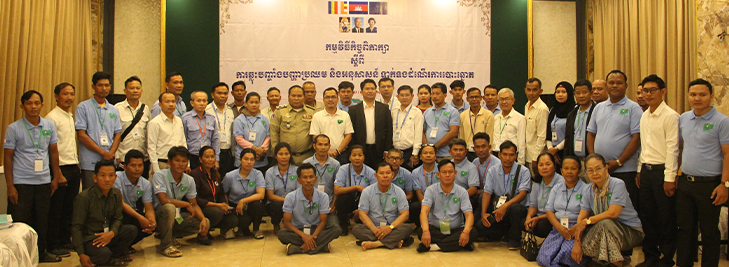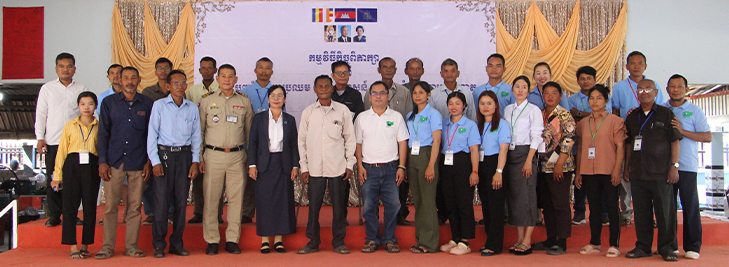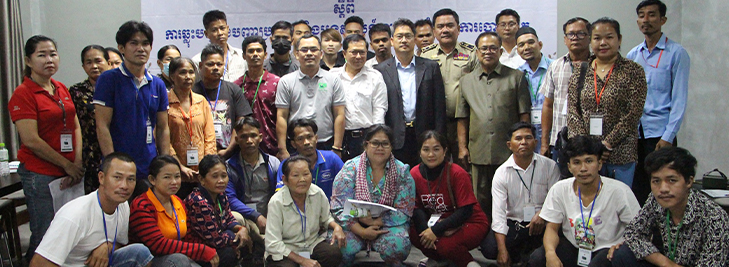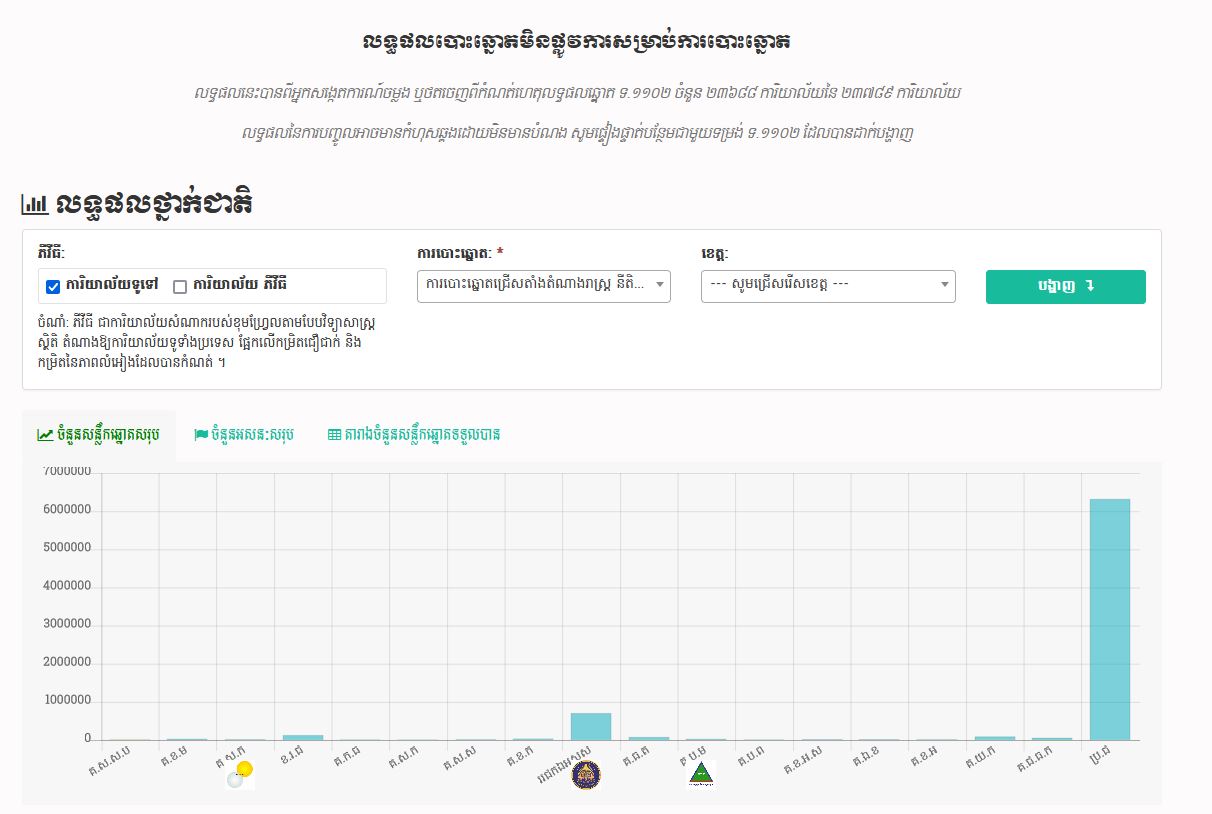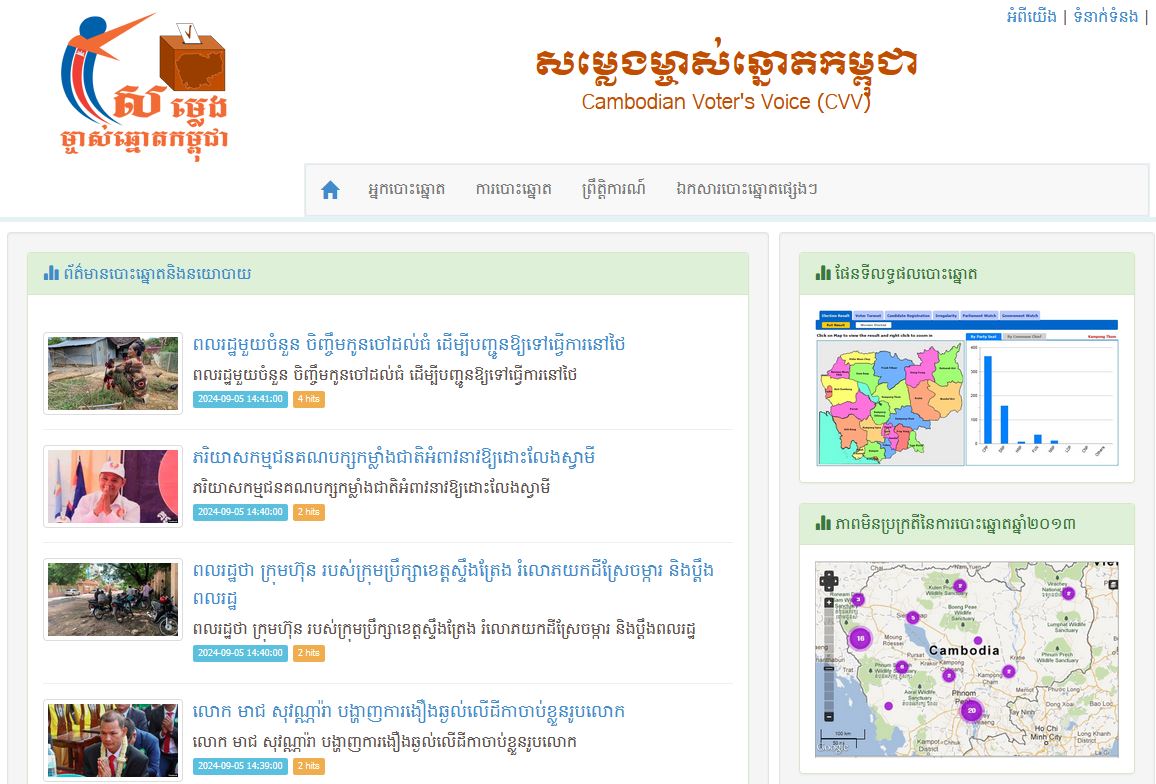Vision
“A democratic society that democratisation in particular democratic elections are promoted and qualified to bring benefit to people”
Mission
Missions: To help to create an informed and favourable climate 1)- for free and fair elections through lobbying and advocacy for a suitable legal framework, education to inform voters of their rights and monitoring activities that both discourage irregularities and provide comprehensive monitoring data to enable an objective, non-partisan assessment of the election process, and 2)- for meaningfulness of post elections through education and public forums to encourage citizens to participate in politics and decision-making, advocacy/lobby for electoral reforms that increase accountability of elected officials and provide comprehensive monitoring data to enable an objective, non-partisan assessment of the fulfillment of political platform and performance of elected officials.
History
A Civil Society “Task Force” on Cambodia Election came together provided an independent domestic monitoring team for the May 1993 elections organised by the United Nations Transitional Authority in Cambodia (UNTAC). Cambodia’s foremost human rights organisations – like ADHOC (Cambodia Human Rights and Development Association), Human Rights Vigilance -, pooled their efforts in lead the Task Force and in a determination to promote the success of the UNTAC administered national democratic election. The Task Force worked in close collaboration with international organisations throughout Cambodia in order to monitor the electoral process, before, during and after polling day. The Task Force managed to provide civic and voter education to over one million voters, and selected, trained and deployed 200 Cambodian election observers.
Although the “UNTAC” elections and outcome will always be the subject of historical debate, the Task Force demonstrated very clearly that effective domestic civil society input was an indispensable part of the new democracy. Accordingly in December 1995, these human right organizations with other civil society organisations thus formed the Committee for Free and Fair Elections in Cambodia – COMFREL.
COMFREL has now participated in the 1998, 2003, 2008, AND 2013 National Assembly Elections, and the 2002, 2007 and 2012 Commune Council Elections. COMFREL is currently engaged in lobbying and advocating for improvements to the legal framework for political and electoral reforms; it has active preparations for future civic education and it also monitors the performance of parliamentary members to assess their fulfillment of political platforms. COMFREL endeavors to build the capacity of its own network as well as those with our partners at national and provincial levels. COMFREL conducts public forums and assesses performance of commune councils, by focusing on the issues of local governance and participation of citizens in local bodies to build democracy from village-level upwards.
COMFREL has built up a unique national representative network. This is membership-based, with a high degree of ownership, a joint purpose and a legitimate and strategic governance advocacy programme. COMFREL has good collaboration with various human rights, governance and democracy organizations, including those associated with its networks through establishment of the situation room on Cambodian Election Day and Electoral Reform Alliance. Together, this holds meetings with the Royal Government of Cambodia, the Ministry of Interior (MoI), legislators, political parties, donors, embassies, and the electorate (directly through networks set up by COMFREL at the local level.) The network provides a structure though which diverse activities can be implemented, beyond the political agenda for which they were established.
